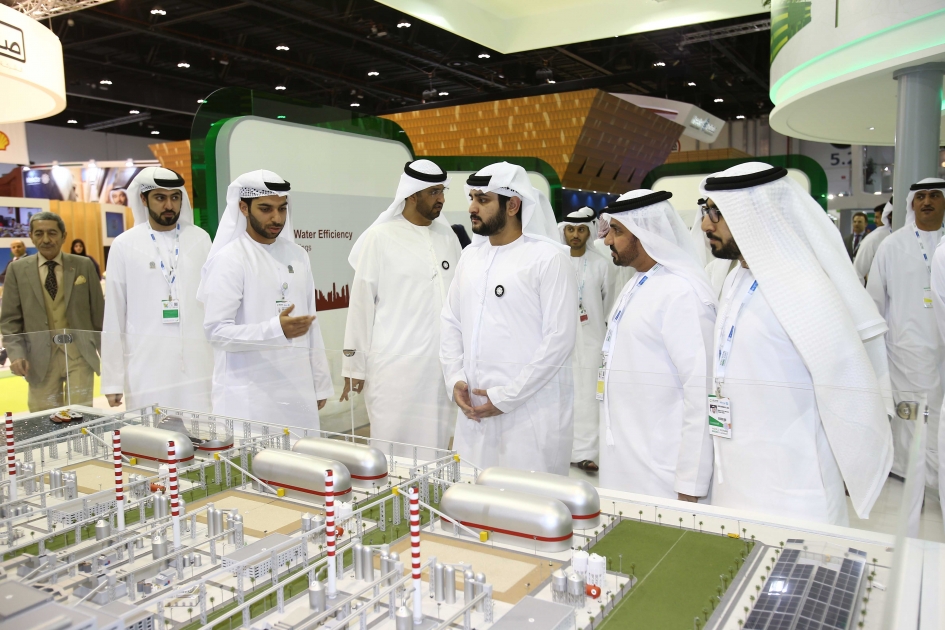
International Water Summit to Put Focus on Clean Energy Desalination
A review of recent research into water security, conducted ahead of this month’s International Water Summit (IWS) in Abu Dhabi, has demonstrated significant potential for innovative desalination technology to improve sustainability in the UAE’s water supply.
The UAE and other GCC states are global leaders in desalination, and have proved the value of the technology in underpinning water security worldwide. Historically, the region has used thermal processes using waste heat from electricity generation. The IWS 2017 Market Report, compiled by Frost and Sullivan, found the UAE uses thermal processes for around 88 per cent of its desalination needs, based on figures from Global Water Intelligence.
Now Masdar is leading efforts to link desalination to renewable energy, investigating the latest advances in technologies such as reverse and forward osmosis, which use a high-tech membrane to filter seawater, and integrating this with solar power generation. The aim is to find the best, most advanced solution, tailored to the region’s environment.
“Innovative desalination technologies have the potential to make a significant contribution to the energy goals of the UAE and MENA region,” said Mr. Mohamed Al Ramahi, CEO of Masdar. “This region has led the way in proving desalination as a viable and secure source of fresh water, and we are now at the forefront of researching new solutions which are both sustainable and commercially viable.”
Hosted by Masdar from 16 to 19 January as part of Abu Dhabi Sustainability Week, and held in strategic partnership with Abu Dhabi Water and Electricity Authority (ADWEA), IWS is dedicated to closing the sustainability gap in the region’s water supply.
Clean energy desalination will be a key topic on the IWS conference agenda, including discussion of progress from Masdar’s Renewable Energy Desalination Pilot Programme. As part of the pilot programme, Masdar has been operating four small-scale desalination plants since 2015, with each plant testing a different desalination process. Three are based on reverse osmosis, while one uses forward osmosis.
With more than a year’s worth of data now to be studied, the results will help identify the most efficient technologies to be coupled with solar energy, offering policy makers and industry a path forward to achieve environmentally sustainable water security.
“The region is seeing heavy investment in solar energy, and there will be less use of fossil fuels in future expansion of the electricity supply across the region,” said Mr. Abdullah Musleh Al Ahbabi, Chairman of ADWEA. “That will make new desalination technology absolutely essential to maintaining future water supplies, and we need to make decisions based on information that is reliable and which is based on local conditions.”
The world uses almost 87 million cubic metres of desalinated water every day, and the MENA region accounts for 44% of that figure, according to the International Desalination Association. In the GCC alone, Saudi Arabia, the UAE, Kuwait and Qatar are all among the world’s 10 largest users of desalination.
Now in its fifth edition, IWS is the Middle East’s leading exhibition and conference for water security, located alongside the World Future Energy Summit (WFES). IWS 2017 will host high-level decision makers from water utilities across the MENA region, creating an essential market for innovations in both water production and water conservation, including infrastructure improvements and wastewater treatment and recycling.
Attendees will experience the latest solutions from exhibitors, investors, contractors and government agencies. Supporting home-grown entrepreneurs, the live competition Innovate@IWS will return with a panel of distinguished judges awarding the most promising water technologies. Exhibitors and attendees can find a dedicated networking forum at the IWS TechTalk stage, with over 40 expert presentations and case studies on the latest water sustainability technology. The Business Connect programme will return to foster business development among the public and private sectors.
IWS 2016 hosted over 10,000 attendees and 185 exhibiting companies from 111 countries. The IWS 2016 conference programme saw 300 delegates and 75 expert speakers exchanging knowledge and best practices in finding solutions to the water challenges facing the region. Business Connect facilitated 1,530 meetings with 386 executives from 320 companies and 38 countries, including Egypt, India, the Kingdom of Saudi Arabia, Jordan, Kuwait, Morocco, Oman, and Pakistan.
IWS 2017 will be co-located with the World Future Energy Summit and EcoWASTE exhibitions at the Abu Dhabi National Exhibition Centre from 16 to 19 January.



























